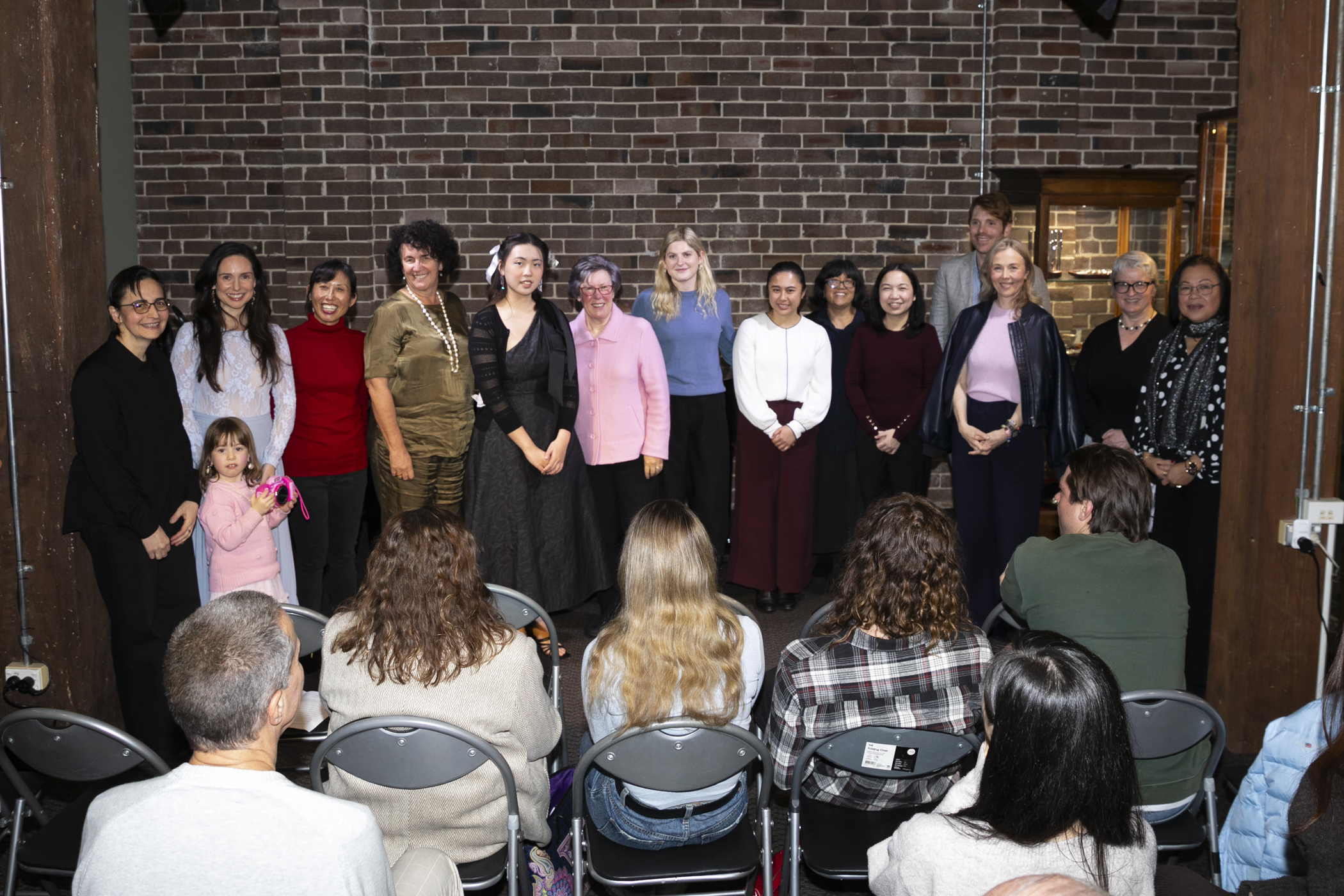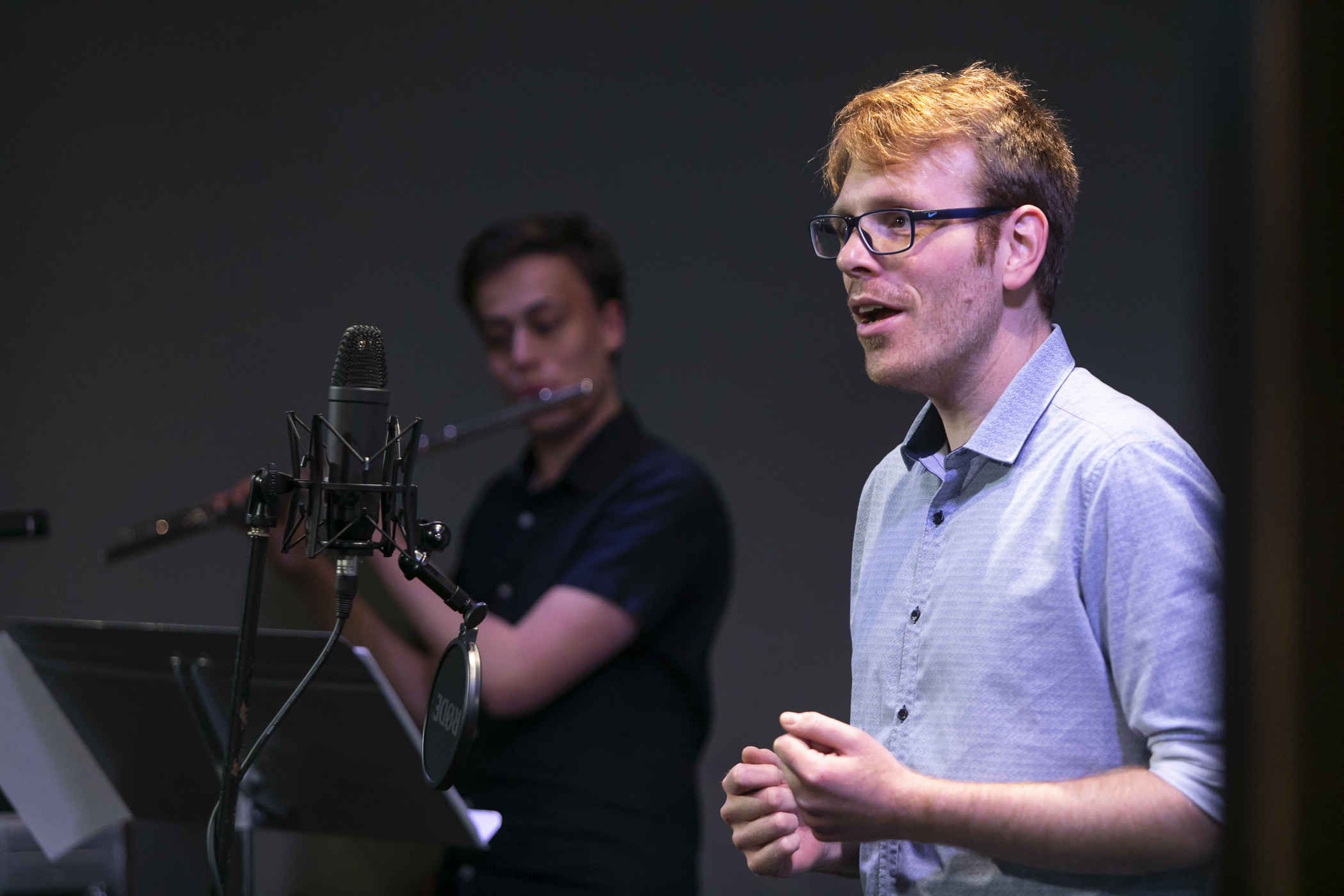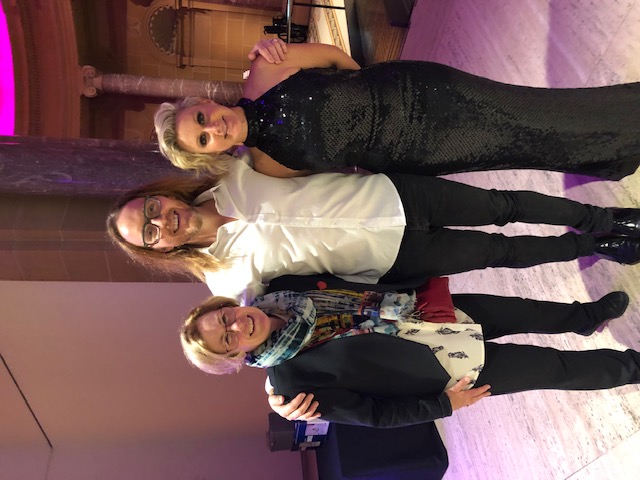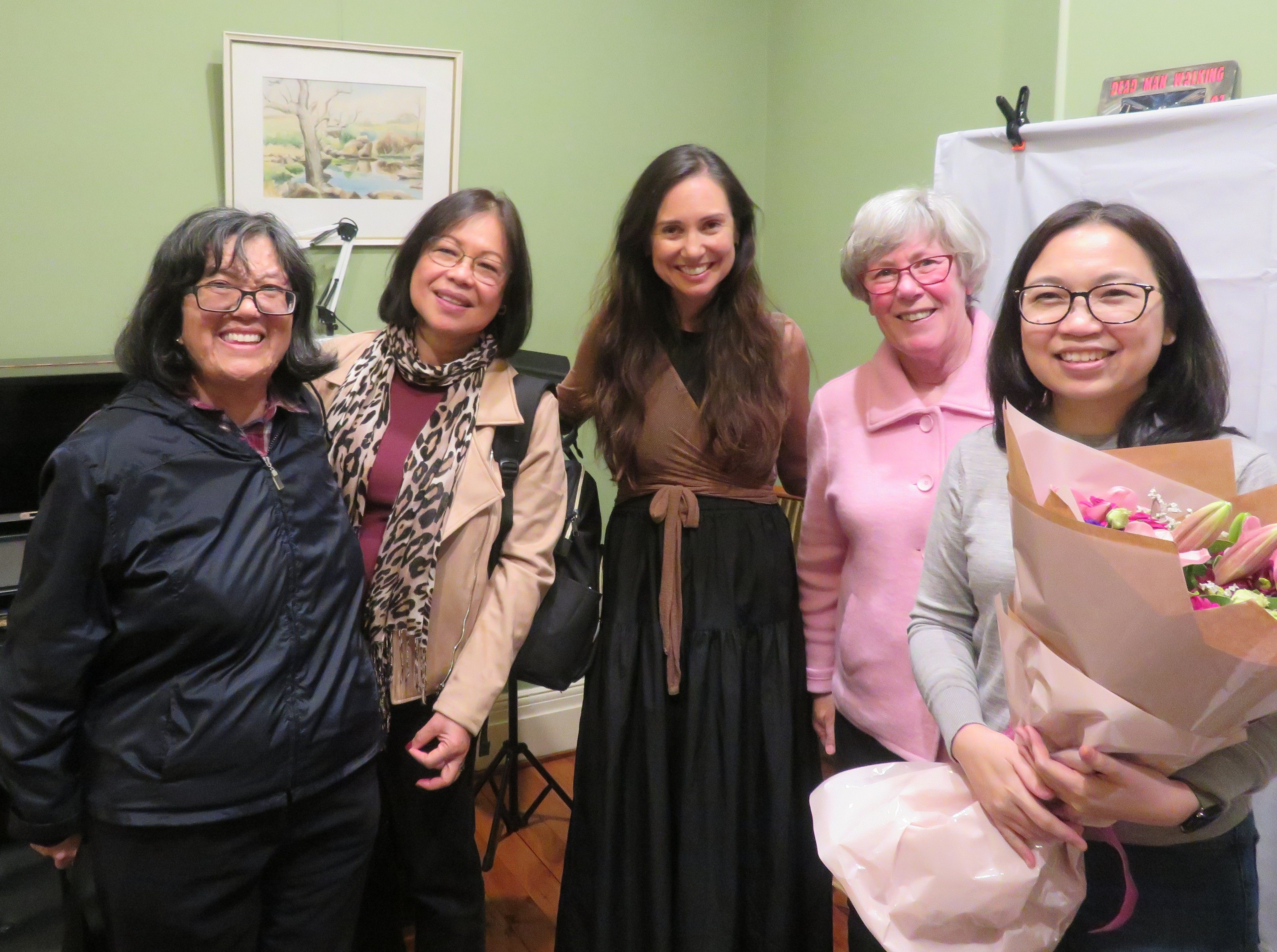Singers reflect on how the studio concert makes them better performers
Our annual studio concert showcased many months of work by our singers. While song choice is important, gaining the confidence to perform with secure vocal technique and tell a story for the audience, helps singers build their knowledge of poetry or storyline, work on character, and choose courageous phrasing and articulation. Singing in a language other than English brings further challenges.
This year, some singers reflected on how rehearsals and performing helped them further develop their craft.
Nick gets comfy with stillness on stage
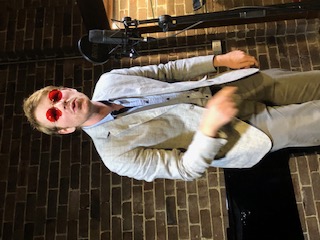
Nick performing Rhythm of Life at our 2025 Studio Concert
Nick had to swap a song mid-rehearsal, when our saxophonist Sophia became unavailable for ‘That Ole Devil Moon’ (B. Lane). Luckily, he had several songs up his sleeve, and performed a creepy take on ‘Rhythm of Life’ (Coleman), along with a warm rendition of Paul McCartney’s ‘My Valentine’.
“I think my songs this time forced me to connect with the musicality of each song, beyond the purely technical elements I have sometimes gotten wrapped up in,” he says.
Nick found a happy medium between pushing his vocal technique and allowing more of his stage background to shine through, to bring character to the songs. “Finding a comfortable stillness during ‘My Valentine’ on stage while still feeling I was effectively conveying the emotion I wanted – this was a good development for me!”
Alex discovers better voice placement
Alex performed ‘If I Never Knew You’ (Menken) from Pocohontas and C. M. Schonberg’s ‘On My Own’. In our lessons, she says she learned where to better place her voice, especially across the middle and upper parts of her range. Working with a professional accompanist and singing without the vocal line for support helped build her confidence, and she was inspired working with the other singers.
“I loved listening to the other students sing during rehearsals and the concert. I find it so motivating to know such great singers continue to invest in their voice by taking lessons, and that I have much more to learn,” she says.
Celeste owns her voice
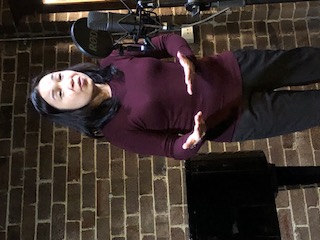
Celeste performing Faure’s ‘Reve D’amour’
Celeste performed Faure’s ‘Reve D’amour’ and Haydn’s ‘Fidelity’. Working on both helped her “be more conscious of the role of abdominal support in resonance. It also helped me explore the chambers in my vocal instrument.”
While she’s still influenced by her favourite singers, Celeste is discovering her own personal sound. “I sound best when I sing songs that suit my voice. I also try to think of my voice as an instrument I need to care for—like a flute is personal to a flautist, or a violin to a violinist.”
Coaching other singers in pronunciation for their French songs was a privilege, Celeste adds. “I had a glimpse of the hard work they put in and how the journey is unique to each person. It inspired me to work hard, too.”
Belinda steps beyond her comfort zone
Belinda boldly chose songs in other languages, Beethoven’s ‘Ich Liebe Dich’ and Weill’s ‘Je Ne T’aime Pas’. She found working with Celeste on the French song rewarding and appreciated the feedback she received during the French workshop.
Francesca finesses her breath control
Returning to performing after a break, Francesca, sang ‘Sebben Crudele’ (Caldara) and ‘Plaisir D’amour’ (Martini). In rehearsals, she worked on her breath control while learning to tell the story of young lost love in both songs.
“It’s all about mindset, and Kathleen has taught me how to support again, which has been a game changer!” she says, reflecting on insights she gained. She also learned something magical about performance: “the light behind your eyes and its power!”
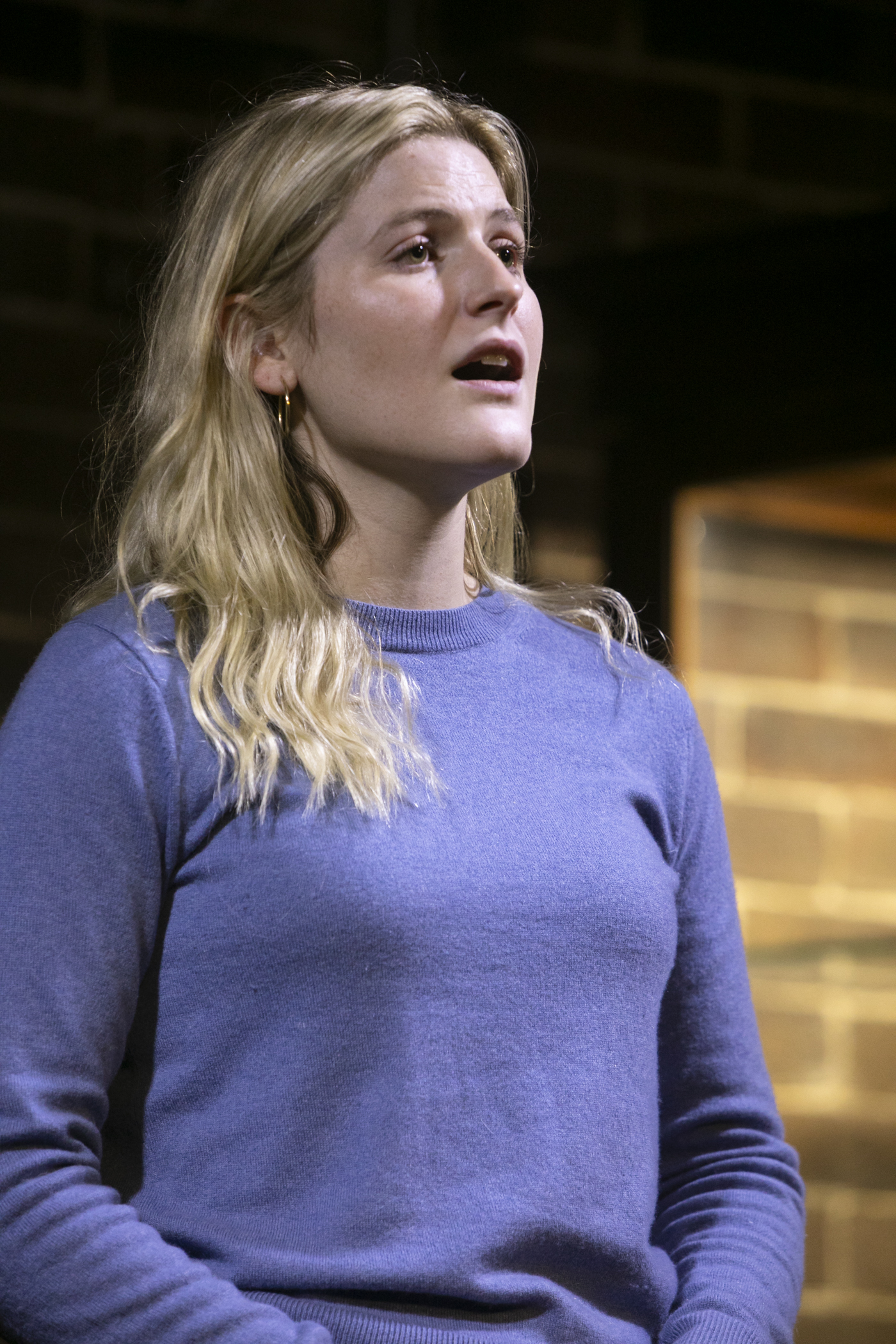
Francesca singing Sebben Crudele (Caldara)
Celine connects through better stage presence
Celine delighted us with her happy version of ‘It’s Only a Paper Moon’ (H. Arlen) and the regretful ‘Autumn Leaves’ (J. Kosma). She’s gained confidence in engaging with an audience through presence and emotional expressions, while learning to trust pianist Alison; being in tune with each other.
“Singing is total commitment of the mind, body and soul,” Celine reflects. “It’s a magical experience that transforms our lives – performer and listener. We need music and song to live.”
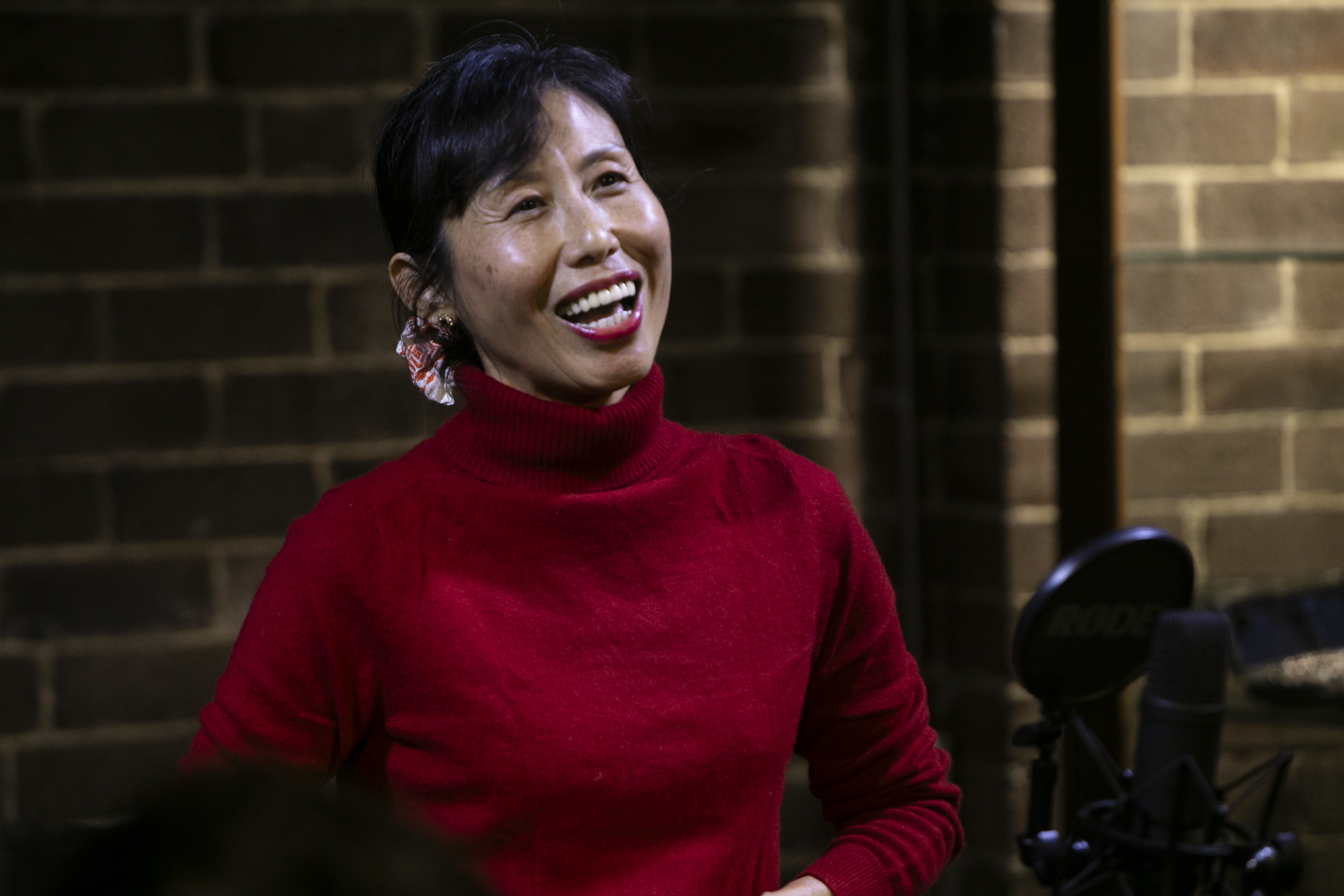
Celine performing Autumn Leaves (J. Kosma)
First-time soloist Deborah is inspired to explore more genres
Singing in public as a soloist for the first time, Deborah chose an entertaining song that still challenged her, ‘Now Is the Month of Maying’ (Morley).
In rehearsals, she worked on her breath. “I think the message has landed that I can take time to breathe properly (deep belly breaths), planning out my phrases from one breath to the next.”
She also learned about collaborating with Alison and not focusing on too many goals. “Alison showed me how to communicate with an accompanist to let them know what I need. In the end, I had one goal for my performance – my breathing.”
Deborah is now inspired to broaden her repertoire after hearing what other studio singers performed. “Having focussed heavily on classical music in my choirs and when learning piano, it’s great to diversify. I will continue with classical music but it’s transformative to sing other music as well.”
For the singers, and myself as their voice coach, it’s rewarding to reflect on how the journey to concert day helps them grow as performers.
Many thanks to the team at The Flute Tree venue, our accompanist, Alison Cameron, sound recordist Frances Murphy, and photographer Ben Walton. You can see photos and video from the concert here.
Kathleen Connell trains singers of all experience levels to perform at their best. Browse our in-person or online training options, or call 0402 409 106.

